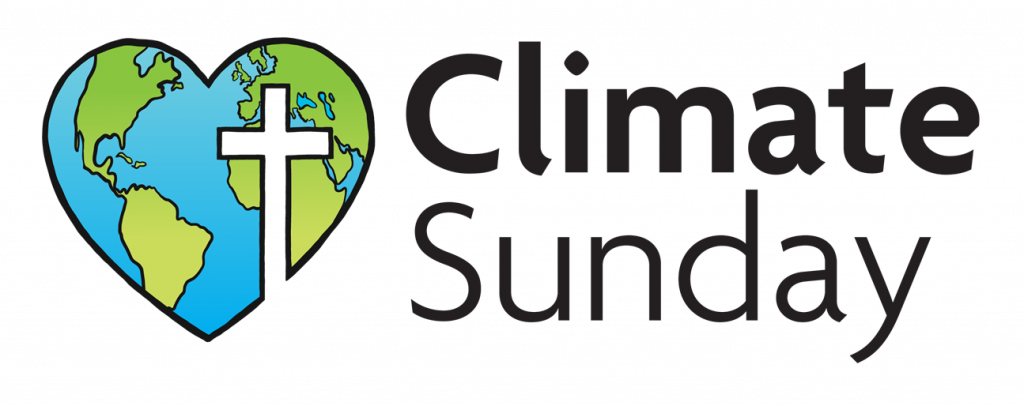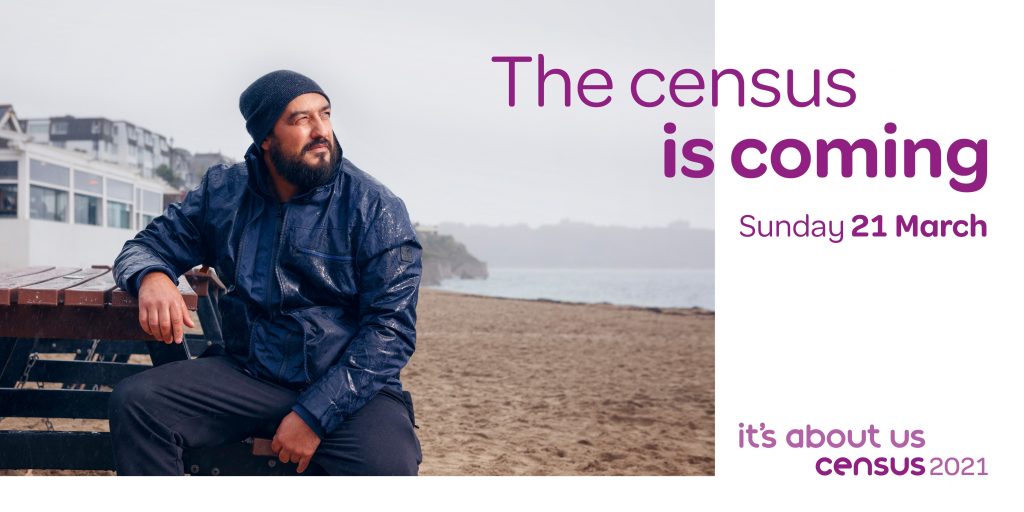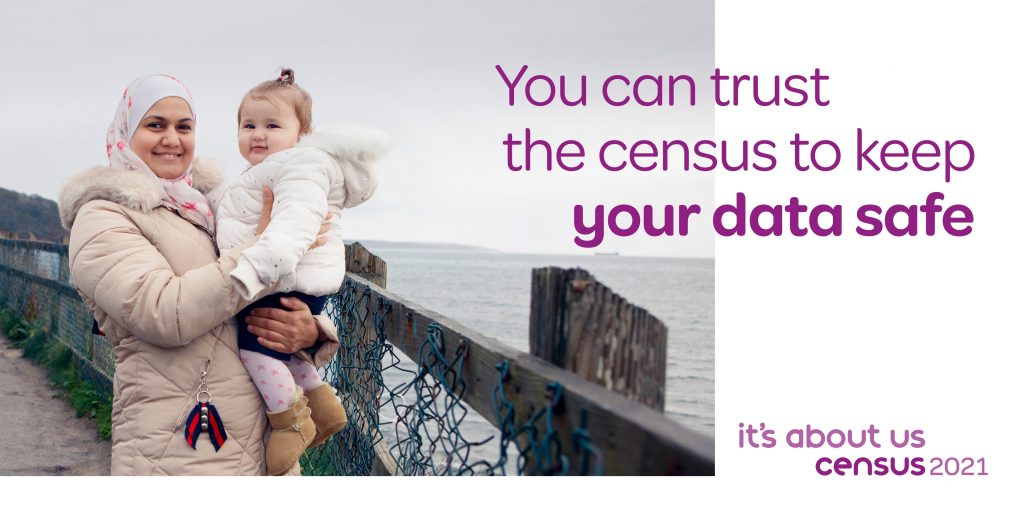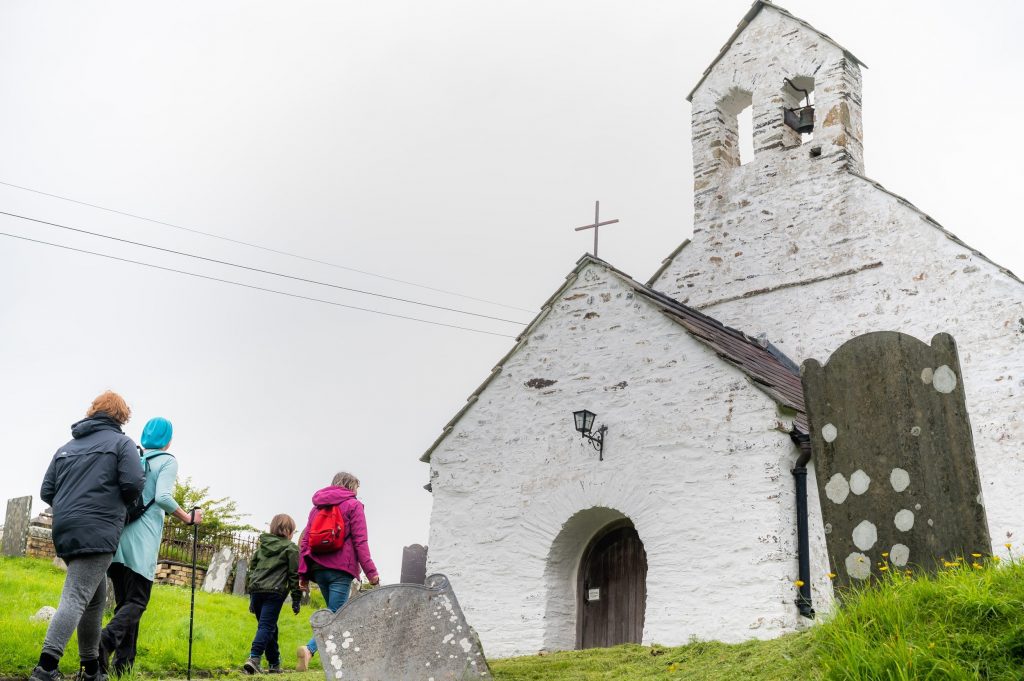CAN CHURCHES AND NATION BUILD BACK BETTER?
The churches of Wales, like the nation as a whole, have for a year focused on the various effects of Covid-19 and the legal restrictions on our work. As well as providing information on those practical issues, Cytûn has been keen from the beginning to help churches consider how to rebuild better once the population is vaccinated and normal activity can resume.
In May 2020 Cytûn co-authored with other partners a paper on responding to climate change in the face of Brexit and Covid, with a companion podcast. Since then, the debate has intensified with the Welsh Government consulting (Cytûn took part in that consultation) and in October 2020 publishing its vision of the challenges and priorities of reconstructing Wales. During January, Gethin Rhys took part in an online discussion with Alex Davies-Jones, MP for Pontypridd, hosted by St David’s Uniting Church.
Cytûn has been clear that the Covid crisis is not the only crisis facing Wales, as there are crises of climate change and nature (biodiversity loss), which will continue after the pandemic. Rebuilding will need to not exacerbate these crises, or it will not be worth rebuilding.

On climate change, Cytûn and many of our denominations are part of a broad coalition of churches across the UK and Ireland that encourage all local congregations to hold a Climate Sunday service, online or in person, on a convenient Sunday. It would be a great opportunity to hold an inter-denominational service and there is plenty of ecumenical material in both English and Welsh on the Climate Sunday website and the Cytûn website.
Each congregation is also asked to:
• commit to acting as a congregation by aiming to become an EcoChurch (or, in the case of Catholic parishes, joining the Live Simply scheme), and
• sign up to the Climate Coalition declaration calling on the United Kingdom to seize the opportunity of chairing the COP26 global climate conference in Glasgow in November to lead the world in reducing emissions that accelerates the climate crisis. Churches can also join the climate.cymru coalition, which will be fully launched on March 1, to ensure that Welsh organizations have a voice at this crucial conference.
The Wales Centre for Public Policy has recently published a report and brief thinkpiece discussing some ideas about how Wales can transform its economy in a just way to tackle the climate crisis.
With regard to the nature crisis, in January 2021 Natural Resources Wales published its State of Natural Resources Report 2020. This thorough analysis is alarming, in terms of the species and habitats that are in danger of disappearing completely over the next decade if we do not make fundamental changes. As the foreword states, The importance of being able to enjoy our natural environment, and the health and well-being impacts it brings, has been made clearer than ever as we all adapted to the restrictions put in place to control the virus. Our collective response to the pandemic represents a once in a generation opportunity to reset our values and priorities, and to realign them with those that will create a more sustainable future.
One of the aims of the EcoEchurch scheme is to enable churches to contribute to this restoration of God’s creation. You can hear more about the scheme in an online service on March 26 to celebrate its 5th birthday.

Tens of millions of pounds in benefits and other help currently goes unclaimed in Wales. That’s money which can make a real difference in families’ lives and their futures.
The reasons why this help isn’t taken up are many, and sometimes complex, but the main reasons are because people don’t know the help is there or don’t believe that they could qualify for it. Many people are also nervous in asking about what help there might be for them. They may not know who to ask about what help is available or they may not want to seem as if they need help.
A new Welsh Government funded project – Dangos – has been launched to help to tackle this, by increasing knowledge and awareness about the availability of help amongst those who are in day-to-day contact, whether paid or voluntary, with families who might need extra help.
We aren’t going to try to turn people into benefit experts or advisers, just to give them some more knowledge and information about what help there is and some tips in encouraging people to take up their rights.
We are doing this by offering a series of free online sessions to frontline workers throughout Wales, continuing through the year. The three-hour long sessions, which will be very interactive, will be supported by a short information pack, and, for those who want it, free access to more detailed e-learning courses about the benefits system and how it works.
The sessions and the information pack will be provided in Welsh and English, as will some of the online courses. The online sessions will be delivered primarily in Zoom, but there will be Microsoft Teams sessions and British Sign Language sessions in English and Welsh on demand.
We will also be happy to provide free online courses for groups of staff from the same agencies, between 10 and 20 in each session, and may be able to ‘tweak‘ the content appropriately.
The Dangos website gives more details and allows people to register, individually, for sessions. The website is at www.dangos.wales and www.dangos.cymru. If you would like any more information, or are interested in in-house sessions, please contact info@dangos.wales.
HELP FOR UK CITIZENS LIVING IN EUROPE
Cytûn’s Wales and Europe Working Group have been concerned about the situation of UK citizens and their families living in EU and EEA countries and Switzerland following the UK’s departure from the EU. We have been informed that the Diocese in Europe of the Church of England is part of a partnership to help such citizens in France and Spain, and their webpage provides information about similar partnerships (of which the Diocese is not a formal part) in other countries.
The closing date for the European countries’ ‘settled status’ schemes is 30 June 2021, so time is short. Cytûn is therefore encouraging our member churches and organisations, and readers of this Bulletin, to ensure that this information is made widely available through appropriate channels and (where applicable) Europe-wide networks. When Revd Canon Carol Wardman and Gethin Rhys met with representatives of the Diocese in Europe in Brussels in February 2020 they were very keen to emphasise that their support and assistance is available to people of all denominations and backgrounds, and not only to members of the Church of England.
Cytûn also continues to encourage churches in Wales to ensure that citizens of EU and EEA countries and Switzerland – and members of their immediate families who are citizens of any country other than the UK or Republic of Ireland – who are living here have applied to the UK Government’s Settled Status scheme. Welsh Government has a web page giving more information and has partly funded an advice service run by a consortium of trusted third sector organisations. The closing date to apply for these citizens also is 30 June 2021.
The charity Vesta has drawn our attention to the services which they provide for the Polish community across Wales.
Cross-Party Group on Faith
House of Good: The Economic and Social Value of UK’s Churches
Guest Speaker: Claire Walker, Chief Executive of the National Churches Trust
Wednesday 24 February 2021, 12.00 – 13.15 via Zoom
For further information, email Jim Stewart on jimstewartwales@gmail.com
Sent on behalf of Darren Millar MS, Chair of the Cross-Party Group on Faith
CONTINUED EXCEPTION OF CHURCHES FROM CHARITY REGISTRATION
Following consultation with the churches concerned, the Regulations under which the congregations of certain denominations in England & Wales are not required to register with the Charity Commission if their income is below £100,000 are being extended for a further ten years, until 31 March 2031. The Charities (Exception from Registration) (Amendment) Regulations 2021, were laid before the UK Parliament on 19 January.
The expectation is that, at some point, the Charity Commission will introduce phased registration of excepted congregations, presumably in tranches based on income. In an e-mail to the Churches Legislation Advisory Service (CLAS) the Department for Culture, Media and Sport of the UK Government confirmed that the Charity Commission will be in touch with church representative bodies to design and develop the voluntary registration programme during 2021, and will publish guidance on the programme when it is ready to commence.
CENSUS CONTINUES DESPITE PANDEMIC
The Office of National Statistics has confirmed that the 2021 Census will continue in England and Wales on Sunday March 21 2021 despite the Covid-19 situation and the postponement of Census day in Scotland to 2022. Householders will be contacted by post around March 7 and given instructions on how to complete the census form online or how to order a paper copy. There will be a 4-5 week window during which the census form can be completed and submitted. ONS estimate that it should take about 20 minutes to complete the form.

Completing the census is a legal obligation on each household. The ONS is keen to point out that they have never suffered a data breach and that no information about individuals will be released for 100 years. The 2021 census will include some new questions relating to sexual and gender identity and armed forces leavers.

Because of the online nature of the Census it is hoped to reach initial estimates of the data for England and Wales in 2022, much earlier than for previous censuses.
FAIRTRADE FORTNIGHT 22 Feb – 7 March 2021
Each year Fairtrade Fortnight gives people – including many hundreds of Fairtrade churches -across the UK the opportunity to celebrate Fairtrade achievements and learn more about the difference that Fairtrade makes.
In Fairtrade Fortnight 2021, we will highlight the growing challenges that climate change brings to farmers and workers in the communities with whom Fairtrade works. The facts are straightforward. Farmers and workers in the global south, who have done the least to contribute to climate change, are disproportionately affected. They have told us that:
- Climate change is one of their biggest challenges right now.
- Low prices for their crops mean that they are struggling to fight back.
- With more money through Fairtrade they feel more equipped to meet their everyday needs and deal with the challenges posed by climate change.
The climate crisis is an immediate and ever-increasing threat and those in climate vulnerable countries are already seeing its impacts from droughts and crop disease to floods, heatwaves and shrinking harvests.
With the emergence of the global COVID pandemic, the challenges that farmers face now are bigger than ever before with falling commodity prices and widespread shocks reverberating along our global supply chains. Ongoing poverty in farming communities makes it increasingly hard to cope with the effects of climate change.
Fairtrade Fortnight in the UK is coordinated by the Fairtrade Foundation, who this year are arranging an online festival. They say: We need your help to put farmers’ voices at the heart of tackling the climate crisis and share the reality of their struggles. Our global trading system is balanced in favour of the powerful few. Trapped in this system, farmers already struggle to meet their immediate needs. More than ever, they need a fair price for their crops and their hard work.

Fairtrade works to raise the voices of farmers and workers and prioritise what they need to respond to the environmental crises unfolding in already vulnerable communities. This Fortnight, we are asking you to Choose the World You Want and use your voice to tell others about the challenges that farmers face from climate change.
Amongst the resources are an online ecumenical service. Fairtrade Wales is also arranging a programme of events based in Wales, which can be accessed here.
SUMMER EVENTS POSTPONED AGAIN
It has been announced that the Urdd Gobaith Cymru National (Youth) Eisteddfod, the Royal Welsh Agricultural Show and the National Eisteddfod of Wales have all been cancelled for 2021 due to the effects of the pandemic. Having missed our church presence at these events for two years running, Cytûn, along with all other participants, look forward to taking part in these festivals again in 2022.
SHOULD I RECEIVE THE COVID-19 VACCINE?
While many are very keen to be vaccinated, some people have questions regarding the new vaccines. The Evangelical Alliance and Elim Pentecostal Church have arranged webinars on the moral questions that may arise, and they can be viewed by following these links.
The Catholic Church in England and Wales has concluded that its members may rceive the vaccine, and their reasoning may be read here, along with links to further ethical analysis.
Information from Welsh Government about the distribution of the vaccine can be seen here.
THE WALES WAY – LOOKING FORWARD TO EXPLORING CHURCHES AGAIN

In preparation for our being able to get out and about again, the National Churches Trust is continuing to expand its guides to exploring Welsh churches on explorechurches.org
The latest addition is the Wales Way, a family of three national routes which leads visitors along the west coast, across north Wales, and through Wales’ heartland. This joins a growing other range of other features such as the churches that are older than our castles, following St David and tidal island churches.
Something to look forward to after lockdown is over!
CURRICULUM AND ASSESSMENT (WALES) BILL
As reported in the December 2020 Policy Bulletin, Cytûn, the Free Church Council of Wales and our member churches have been in intensive discussions with the Welsh Government on the implications of some of the proposals in the Curriculum and Assessment Bill currently before the Senedd. Stage 2 of the scrutiny process at the Children, Young People and Education Committee on January 29 saw amendments agreed as a result of those discussions.
It was agreed to amend the Bill so that the county Statutory Advisory Councils which adopt the syllabus for Religion, Values and Ethics in their area and monitor its implementation would continue to include a single committee representing religions and non-religious beliefs (such as humanism), as well as a committee representing teachers and a committee representing the local authority. The Bill also makes it statutory that representation on the first committee is commensurate, as far as practicable, with the strength within the county of each group represented, and that County Councils must follow Welsh Government guidance in this respect. Cytûn warmly welcomes these changes, as they reduce the possibility that fringe groups (religious or otherwise) who do not have significant local membership might be represented on these committees, and thus unduly influence the work of our schools.
Changes were also agreed to harmonize to some extent the legal requirements for Religion, Values and Ethics on church and other schools, and allow further consultation and a vote in the Senedd when a code for Relationships and Sexuality Education is published.
At the end of January, the Welsh Government published an Implementation Plan for the new curriculum, to help schools and local authorities prepare the new local curriculum that will be required for each school. The Plan sets out a plan of action for the next five school terms (until September 2022), but also states that schools are not expected to be able to fully pursue it at present due to the situation with Covid-19.
CONTINUING TO DISCUSS THE FUTURE OF AGRICULTURE IN WALES
The Welsh Government has published a new White Paper consultation setting out plans for the next phase of agricultural policy in Wales. The paper sets the scene for the Agriculture (Wales) Bill which will be introduced in the next Senedd term. It takes and builds on some of the ideas put forward in Sustainable Farming and our Land, in the light of the responses received. The latest consultation is open until 26 March 2021.
ELECTIONS MAY 2021
As we publish this Bulletin, it is expected that there will be important elections in Wales on May 6, namely the election of 60 members to the Welsh Parliament and the election of the four Police and Crime Commissioners (PCCs), one for each police force in Wales.
Cytûn is part of a partnership of churches across the UK that is creating politically impartial resources to help individual churches and Christians think and pray as they prepare to vote. Material will soon be available on a dedicated page on Cytûn’s website giving factual information about the elections and a guide to considering the main issues.
Cytûn is also part of a partnership with the Welsh Centre for International Affairs (WCIA) and the Ethnic Minority and Youth Support Team Wales (EYST) to hold an online question and answer session with the main political parties on Wednesday 14 April at 6.30-8pm. Book online here. The session will focus on the climate and nature crises; education and the new curriculum; poverty and inequality; and being a welcoming nation. Cytûn will also offer guidance to local groups wishing to hold similar meetings for their local constituencies or regions, either face to face (if the public health situation allows) or online.
There is the possibility that elections may have to be postponed, and the Welsh Elections (Coronavirus) Bill has been introduced to enable the Llywydd to postpone the Senedd election for up to six months if necessary. Deferral of PCC elections is a matter for the UK Government.
GETHIN ABRAHAM-WILLIAMS MEMORIAL LECTURE

Following his sabbatical periods during 2020 studying climate change, Cytûn’s Policy Officer, Rev. Gethin Rhys, has been invited to deliver the Gethin Abraham-Williams Memorial Lecture on Thursday May 20 at 5-6.30pm. This lecture will be held online.
Gethin said, “Many people call the comments of people like Greta Thunberg and some scientists, writers and campaigners about climate change ‘apocalyptic’ – consider the name ‘Extinction Rebellion’ for example. The same word is used to refer to parts of the Bible, such as sections of the Book of Daniel, Mark chapter 13 or the Book of Revelation. I have been considering the relationship between the old Biblical apocalyptic literature and the emerging secular apocalyptic. Is the idea of ‘apocalypse’ a sign of despair, or a sign of hope – as the Bible writers intended? That’s what I will be exploring in the lecture.”
The title of the lecture will be The End of the World? Christian apocalyptic and responses to climate change. It will be delivered bilingually, with simultaneous translation from Welsh to English, and there will be an opportunity to ask questions at the end. Book online here.
Cytûn – Churches Together in Wales
Room 3.3, Hastings House, Fitzalan Court (opposite Brunel House), Cardiff CF24 0BL
Office tel: 03300 169860
E-mail: post@cytun.cymru www.cytun.co.uk
Twitter @CytunNew
Publication date: 2 February 2021. The next bulletin will be published on 31 March 2021.
